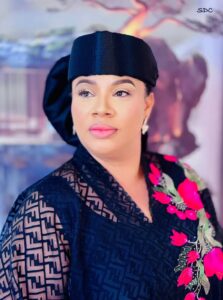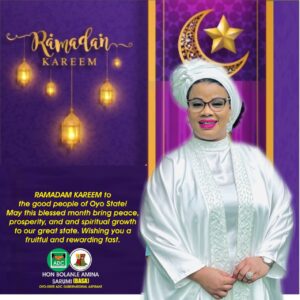Tinubu’s Lagos-Centric Yorubaization of Nigeria

Last week, in response to mounting, difficult-to-controvert, empirically impregnable accusations that President Bola Ahmed Tinubu disproportionately favors his Yoruba ethnic group in consequential federal appointments, the presidency circulated a list of Tinubu’s appointments to countermine the firmly fixed national narrative of Tinubu’s unexampled ethnocentrism but was compelled to withdraw it because it was embarrassingly error-ridden and factually inaccurate.
Sunday Dare, the President’s Media Adviser on Media and Public Communication, tweeted on April 10 that the presidency had “noticed a number of errors in the list of appointments tweeted,” said they were “sorry,” and that they would “provide an updated list later.”
More than a week later, we haven’t seen the updated list that Dare promised, which will supposedly show that, in spite of incontestable evidence to the contrary, Tinubu’s appointments reflect fairness to the ethnic and regional complexities of Nigeria and that the Yoruba people don’t dominate appointments and control the commanding heights of the economy.
Interestingly, while the presidency is still updating its list and eating humble pie, a more damning list of Tinubu’s appointments has emerged. It is longer and shows an even more indefensibly insidious, not to mention unexampled, ethnocentric capture of the major levers of government.
Again, while we are awaiting the updated list of Tinubu’s appointments that shows evidence of a fair distribution of federal appointments, the government chose to undermine itself and provide additional ideational ammunition for his critics who say he is beholden to advancing the unfair dominance of his ethnic group.
On April 16, the administration announced the formation of an eight-member committee to oversee preparations for the national census. Of the eight, five were Yoruba. In a country comprising over 500 ethnic groups, such a configuration reflects a troubling insensitivity to the symbolic and political weight of representation, especially in a matter as contentious and identity-laden as a national headcount.
The exclusion of the northeast, southeast, and south-south from the committee cannot be dismissed as oversight. Nor can the disproportionate Yoruba presence be defended as incidental. The demographic sensitivities surrounding census exercises in Nigeria are historically fraught.
That the president’s team would assemble a committee so lopsided at such a politically volatile time betrays either a stunning lack of political judgment or a deeper confidence that no consequence will follow such overt ethno-regional privileging. Either way, the signal is unmistakable and deeply corrosive.
Equally emblematic was the decision to have the president’s Chief of Staff, Femi Gbajabiamila — a fellow Yoruba and an unelected official whose role has no constitutional standing — inaugurate the committee. This move, while procedurally permissible, was laden with semiotic overreach.
The constitutionally designated deputy of the president, Vice President Kashim Shettima, a northerner, was bypassed despite being present in the country. The optics communicate the message of an informal inner circle displacing formal constitutional roles, with ethnicity as a defining axis of inclusion and exclusion
For an administration straining excessively hard to convince a skeptical nation that the evidence of ethnic bigotry in governance that stares them in the face isn’t what they think it is, gestures like this do not merely raise questions; they answer them in ways that deepen cynicism and confirm suspicions
I think honchos of the Tinubu administration shoot themselves in the foot and expose themselves to ridicule when they try to defend the administration’s Yoruba-centric favoritism because their rhetoric is often hysterically at variance with the evidence.
They have two options. The first option is silence. There is more dignity in silence than lies, easily refutable lies. It’s better to be thought a fool, as the saying goes, than to open your mouth and remove all doubt.
The second option is to be bold and point out that Tinubu is merely expanding the ethnocentric path that Buhari paved. In several previous columns where I railed against the Arewa-centric favoritism of Buhari’s appointments, I repeatedly warned that Buhari’s southern successor would expand on his bigotry and that defenders of Buhari’s favoritism who insulted me would have no moral pedestal to stand on when that happened.
That time has come. To be frank, I am enjoying seeing people who defended, explained away, or ignored Buhari’s favoritism (because they imagined that he would be in power for ever) squirming and complaining of Tinubu’s more expansive, unapologetic ethnic capture of the levers of government.
When you initiate an action, you can’t determine the nature and contour of the reaction. Saying Buhari was less exclusionary than Tinubu is now is a weak charge. Buhari shouldn’t have started it, and the people who defended him or looked away should have known that this moment would come.
Of course, the people who benefit from or who defend Tinubu’s unabashed Yoruba-centrism should be aware that, like Buhari’s Arewa-centrism, it also has an expiration date, and that the successor to it may be worse than it.
Defenders of the narrow-mindedness of the Tinubu regime should also be aware of other unintended consequences of their ethnic triumphalism. Just like Buhari has caused the Fulani (including poor, innocent ones) to be reviled all over Nigeria, everyday Yoruba people who also suffer the consequences of Tinubu’s economic policies, will be targets of transferred aggression.
Like the Fulani, the Yoruba may become the objects of undeserved and unearned ethnic hate on account of the president’s inability to see beyond this ethnic enclave in appointments and symbolic actions
It doesn’t matter that, like a Yoruba friend tells me each time this issue comes up, Tinubu’s outward Yoruba-centrism actually masks a more exclusionary Lagos-centrism. He says most of the Yoruba people Tinubu appoints to important positions have connections to Lagos.
I don’t doubt him. In fact, in a January 24, 2024, column titled, “North and Tinubu’s Back-to-Lagos Moves,” I made that point.
“With a few notable (and in some cases unavoidable) exceptions, Tinubu’s government is largely the re-enactment of his time as the governor of Lagos,” I wrote. “It is, for all practical purposes, an unabashed Lagos-centric Yorubacracy. To be fair, though, with the possible exception of Olusegun Obasanjo’s administration, all civilian regimes since 1999 have been insular ethnocracies.”
I should also point out that in spite of appearances to the contrary, many well-informed, cosmopolitan Yoruba people are embarrassed by Tinubu’s unabashed favoritism toward Yoruba people at the expense of other ethnic groups.
For example, when Tinubu was considering Bayo Ojulari as the Group Chief Executive Officer of the Nigerian National Petroleum Company Limited, it was a Yoruba man who is close to the Tinubu power orbit, who reached out to me, giving me the privilege to be the first person to break the news months before it was officially confirmed.
In my widely shared December 28, 2024, column titled, “Tinubu’s Buharization of the NNPC,” I wrote the following:
“Ironically, this column was inspired by a well-regarded Yoruba supporter of President Bola Ahmed Tinubu who is worried, in fact embarrassed, by the optics of what he says is Tinubu’s relentless Yorubacentric take-over of the Nigerian National Petroleum Company (NNPC)
“His concern wasn’t just partisan discomfort; it was a profound unease about how this nepotistic approach undermines national cohesion.”
However, after I discovered that Ojulari is a northern Yoruba, not a Southwestern Yoruba as my source had thought, I wrote a follow-up column (see “NNPC and Fresh Perspectives on Ojulari’s Identity,” January 04, 2025) to clarify my position and to argue that it’s disingenuous to deny the northern identity of northern Yoruba people only when they benefit from the representational benefits of being northerners.
As I have argued many times in the past, appointments are the symbolic conduits through which citizens relate to governments. That is why representational justice is crucial for a complex, multi-ethnic country like Nigeria.
However, since our national leaders have historically chosen to find comfort only in their ethnic and regional cocoons and to abandon the hard task of building bridges and integrating our disparate but entirely collapsible identities, we will continue to sink deeper and deeper into the low watermarks of exclusion and bitter divisions
By Farooq Kperogi







